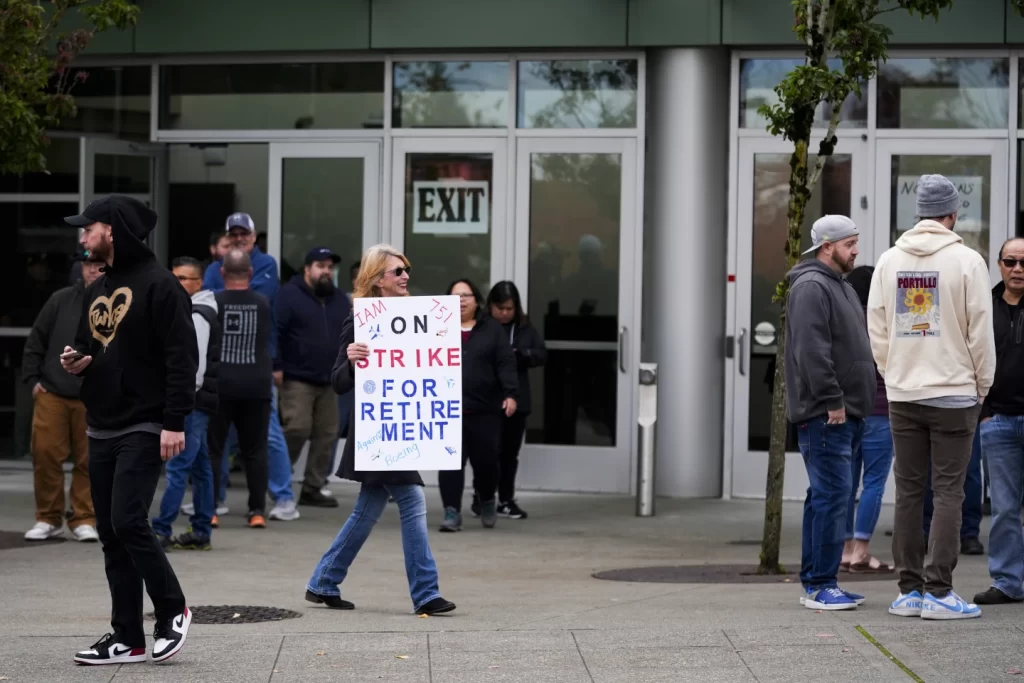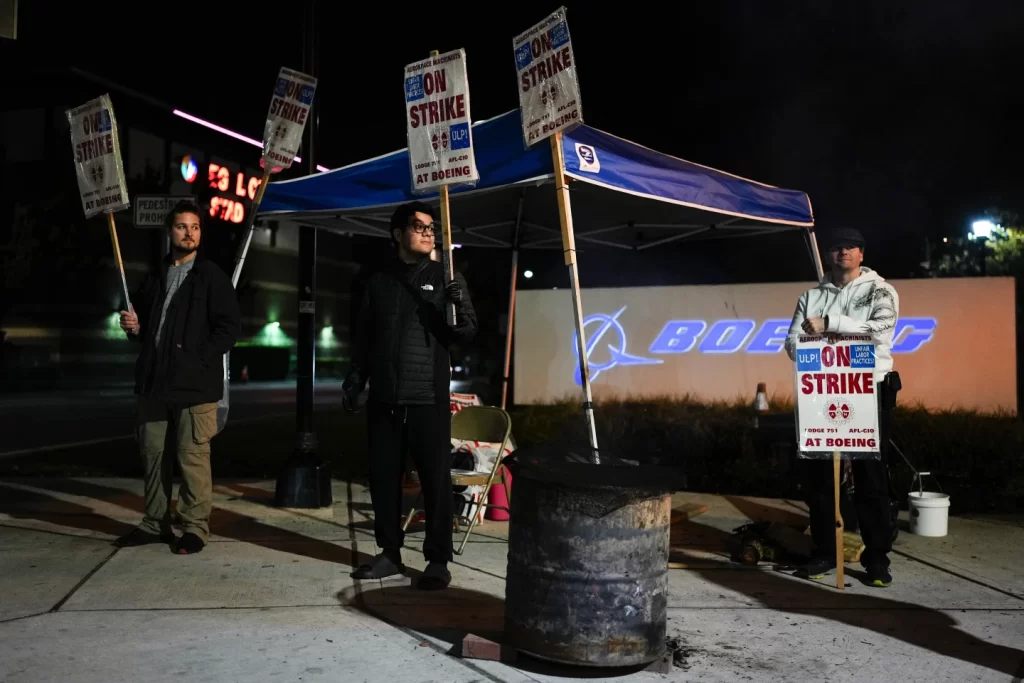Boeing machinists are voting Monday on a contract proposal that could end their seven-week strike, a labor action that has paralyzed production of most Boeing commercial aircraft and deepened the aerospace giant’s financial challenges.

The International Association of Machinists and Aerospace Workers (IAM) District 751 has endorsed the latest offer, which includes 38% pay raises over four years plus enhanced bonuses. Union leaders say the package represents the best achievable outcome after weeks of negotiations.
“It is time for our members to lock in these gains and confidently declare victory,” union officials stated in announcing the vote. “We believe asking members to stay on strike longer wouldn’t be right as we have achieved so much success.”

The proposed agreement would boost average machinist pay from $75,608 to $119,309 over four years and includes a $12,000 ratification bonus, up from $7,000 in the previous rejected offer. Boeing has also promised to build its next passenger aircraft in the Seattle area, though union officials warn this commitment might be withdrawn if workers reject the deal.
The strike began September 13 when workers overwhelmingly rejected Boeing’s initial 25% wage increase offer with 94.6% voting against. A second proposal offering 35% raises was defeated October 23, though with increasing support at 36%, suggesting to Boeing leadership that a deal was within reach.
Boeing has maintained its firm stance against reinstating traditional pensions, which were frozen nearly a decade ago and remain a key issue for many workers. The company instead offered increased contributions to employees’ 401(k) retirement accounts.

The labor dispute has caught the attention of the Biden administration, with Acting Labor Secretary Julie Su intervening multiple times in negotiations, including last week.
This strike marks the latest challenge in a tumultuous year for Boeing. The company faces multiple federal investigations following January’s Alaska Airlines door plug incident, which led to production restrictions from regulators. New CEO Kelly Ortberg recently announced 17,000 layoffs and a major stock sale to prevent a potential credit downgrade to junk status.
The walkout has severely impacted Boeing’s cash flow by halting deliveries of its popular 737 Max, 777, and cargo-configured 767 aircraft. The company reported a third-quarter loss exceeding $6 billion as the strike continued.

If workers ratify the contract, they would return to work by November 12. Union officials expect to announce voting results Monday night. They have cautioned members that rejecting this offer could lead to less favorable terms in future negotiations.
The vote comes as Boeing grapples with broader challenges, including diminished trust following the 737 Max crashes and subsequent investigations. While Ortberg acknowledges these issues, he points to the company’s $500 billion backlog of orders as evidence of its fundamental strength.



